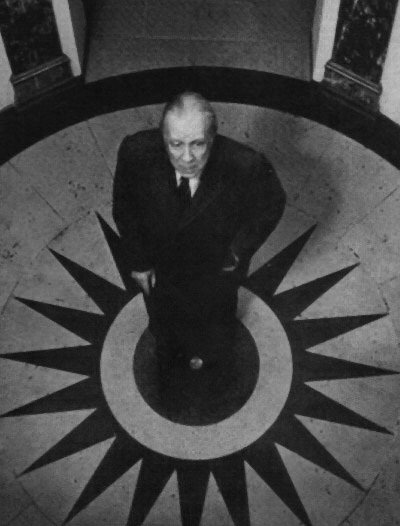Sleeping, as we all know, is the most secret of our acts. We devote a third of our lives to it, and yet do not understand it. For some, it is no more than an eclipse of wakefulness, for others, a more complex state spanning at one and the same time past, present, and future,; for still others, an uninterrupted series of dreams. To say that Mrs Jáuregui spent ten years in a quiet chaos is perhaps mistaken; each moment of those ten years may have been a pure present, without a before or after. There is no reason to marvel at such a present, which we count by days and nights and by the hundreds of leaves of many calendars and by anxieties and events; it is what we go through each morning before waking up and every night before falling asleep. Twice each day, we are the elder lady.

From “The Elder Lady” in “Doctor Brodie’s Report“, Jorge Luis Borges, trans. Norman Thomas di Giovanni.

One of the things I have used this blog for is as a commonplace book, collating various quotes of interest to me. One interest I have is sleep, not only in the medical sense, not only in the personal sense, but in the sense of it being a true mystery of existence. We all need sleep, but why exactly? And what is it like to sleep? We all do it, but who can describe what the sensation of sleep is – indeed, if the phrase “the sensation of sleep” is meaningless, what then?
Not surprisingly, I have found that the best descriptions of sleep are in literature. I have collected passages from J G Ballard, from Elaine Dundy, from Thomas Bernhard, from Cees Nooteboom, from Bravig Imbs, from Marilyn McEntyre, from Heraclitus via George Steiner, from Homer via Adam Nicolson, from Vladimir Nabokov – an eclectic bunch, to be sure. No doubt many many more examples could be collected and I am missing some obvious ones. I have tended not to collect descriptions of dreams or dreaming.
Re-reading “Doctor Brodie’s Report” over the weekend, I came across the above passage, which, of all those I have collated, seems to capture most beautifully the mystery of sleep, the varieties of human experience of it, and as a sort of bonus something of the mystery of dementia. My own father died nearly five years ago, having had dementia for at least seven years and more likely a decade. One of the only blessings I can think of about our experience is that his essential personality was preserved. I do wonder what his day to day existence was like and I feel that Borges’ description of the elder lady’s life captures something essential and hard to pin down about it.
Reblogged this on A Medical Education and commented:
I have blogged both here and on my other blog quite a few quotes from novels and other literature on sleep. I have found these passages capture a sort of phenomenology of sleep as effectively as any clinical text. In this post I use a quote from Jorge Luis Borges as the starting point for a more general, although ultimately quite personal, discussion of literature and sleep and other altered states of consciousness.
LikeLike